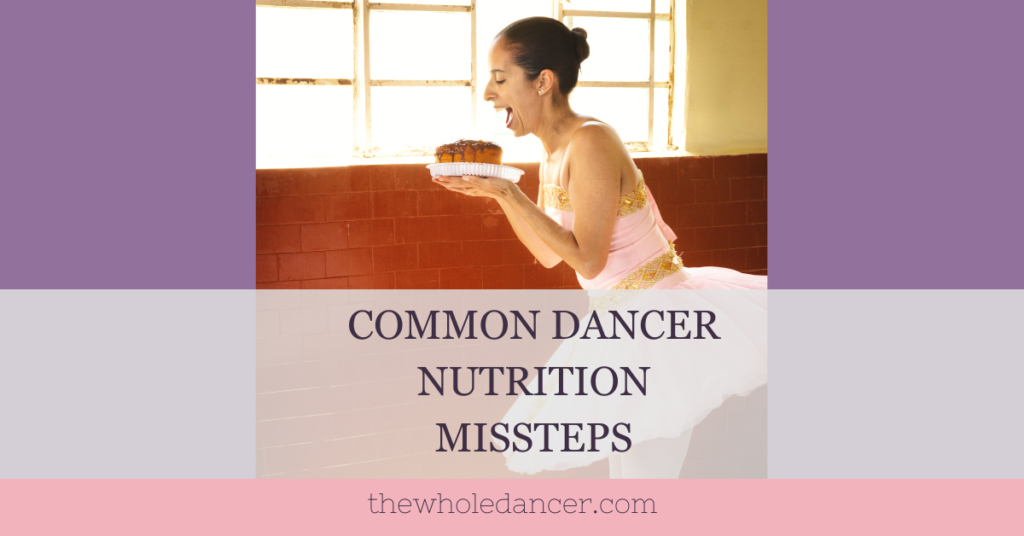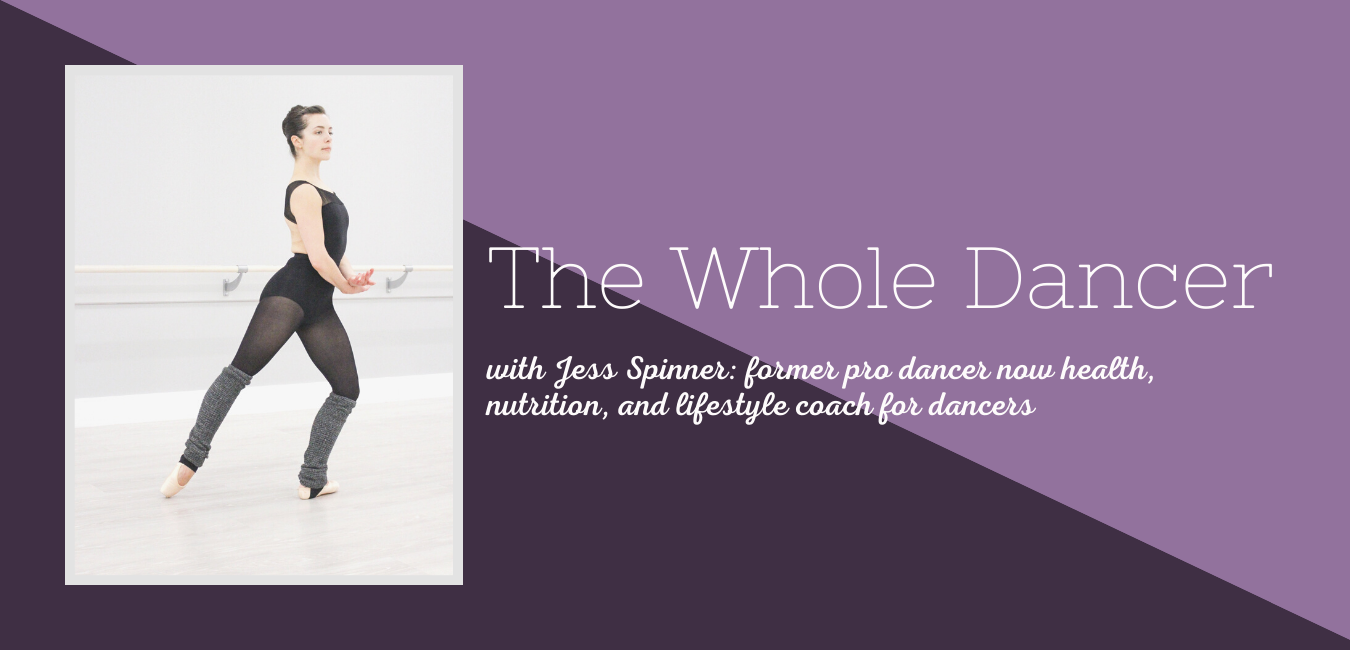There are some common nutrition traps dancers have a tendency to fall into at some point on their journeys. It’s not something to feel badly about, but it is important to recognize if you’re getting into these unhelpful habits. Your food choices should support your best dancing, but these pitfalls can lead to injury or a disordered relationship to food. Here you’ll find the common dancer nutrition mistakes as well as strategies to avoid them.
#1: Underfueling
This one is big. It’s really integrated into many dance spaces that dancers don’t need a lot of food, don’t actually eat a lot, or shouldn’t eat a lot. This message is perpetuated by teachers, other dancers, and sometimes dance-world messages at large.
As a dancer, you’re much more active than the average individual. Advice that applies to someone working a desk job who is minimally active does not apply to you.
You need to consume food throughout the day without allowing hours and hours to pass between meals or snacks. Those meals should be not only nutrient dense but also calorically dense to provide the energy your body needs to perform at its peak.
If you focus too much on “clean-eating,” you might end up eating lots of food that is nutritious but also low in calories. With busy schedules and limited time, dancers need a big calorie punch at each meal to support high energy, focus, mood, and recovery.
#2: Obsessing over tracking calories or macros
If you use an app to track your food, calories, or macronutrients, you’re likely to adhere to an unhealthily low goal. This happens because those apps are not created for high-performance athletes. As a dancer and artist-athlete, you need a lot more than the average person. An app is unlikely to give you a useful equation or accurate number.
When you obsess over the numbers dictated by an app, it often leads to disconnection from your body and its cues. You’re no longer in tune with what your body actually needs and instead are focused on what an external calculator tells you it needs.
One of the big goals I have for the dancers I work with is that they become true experts on their bodies. You’ll only become an expert by tuning into yourself, being open to experimentation, and making supportive changes based on how you feel.
#3: Allowing your choices to be influenced by peers or teachers
Part of the food challenge for dancers is that you’re constantly surrounded by people with opinions on what you should or shouldn’t eat. We all have our own food baggage, and a lot of that comes from the influence of peers, teachers, or parents.
What works for one dancer may be a terrible eating plan for another. Once again, you have to tune into yourself, your needs, and follow your own body’s lead. You may have dance friends who undereat, and you may have dance teachers who promote undereating.
Tune out the comments and tune into yourself. Commit to a balanced approach that feels good for you regardless of what anyone else says or does.
#4: Focusing too much on how you look instead of how you feel
When you start with an external focus, it’s easy to become self-critical. After all, you’ve been trained from a young age to use mirrors to self-correct and identify what’s “wrong.” It makes perfect sense that when you focus on how you look, you pick yourself apart.
For a balanced and supportive approach to nutrition, the primary concern has to be how you’re feeling. Your food should support you to feel energized, focused, uplifted. It should help alleviate soreness and aid in recovery. If you’re not feeling confident, it’s possible you’d benefit from some support. Coaching will help you identify shifts in food and lifestyle that will help you dance and feel your best.
If you’re busy criticizing your size or shape, it becomes very hard to develop self-compassion. Studies have shown that higher levels in self-compassion actually lead to more supportive eating habits.
Avoid these common dancer nutrition mistakes and support yourself to feel calm, easy, and confident in your food choices and your body. Feeling stuck? Let’s chat!


I love your content! Thank you for shedding light on these topics. Hopefully more dancers will be able to educate themselves as more people have open conversations.
Thanks for your comment, Maria!! Looks like you’re doing amazing work to support dancers as well. Glad you’re here. xo, Jess
Pingback:Dealing with Casting in Dance - The Whole Dancer